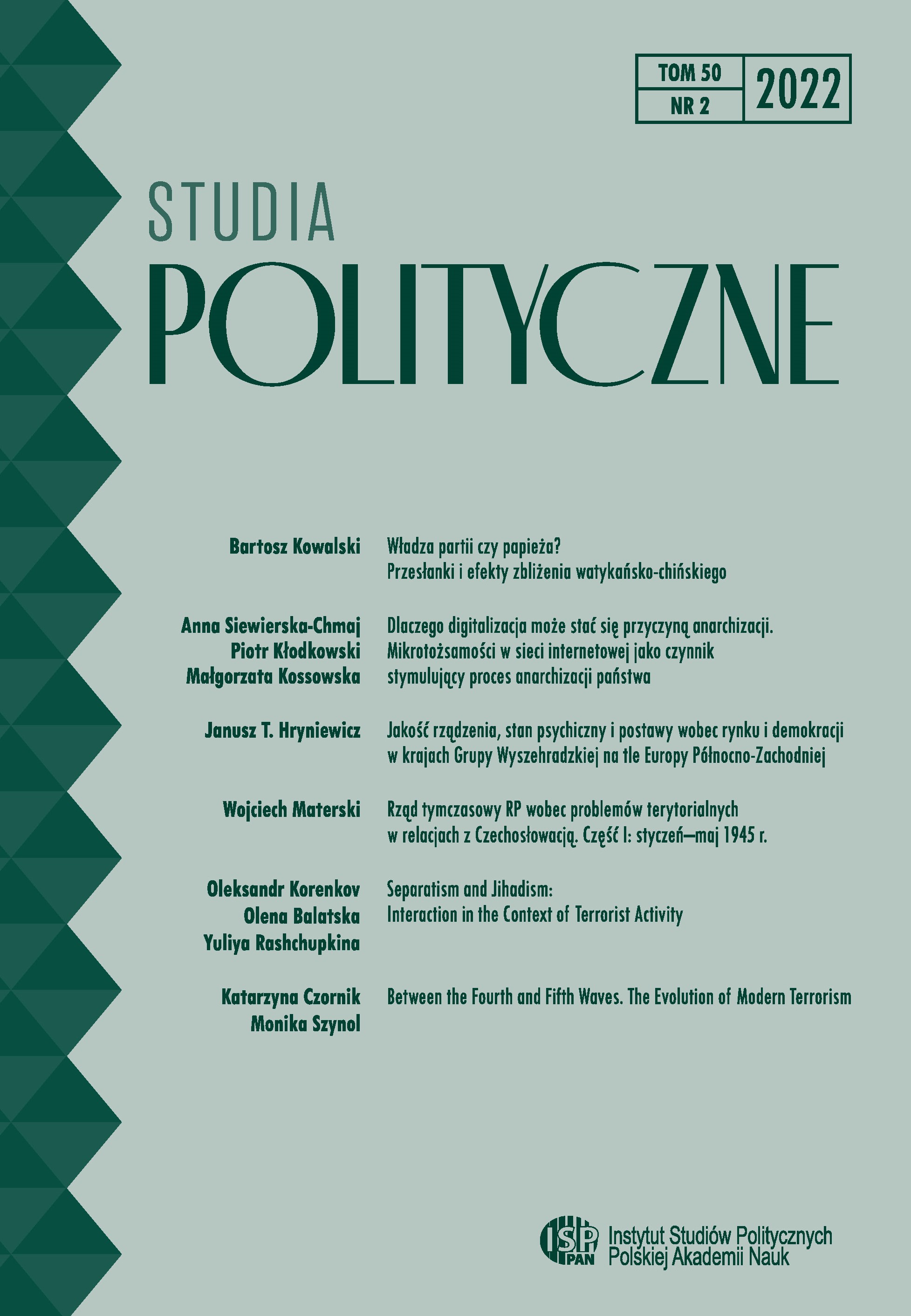Rząd tymczasowy RP wobec problemów terytorialnych w relacjach z Czechosłowacją
Część I: styczeń–maj 1945 r.
The Provisional Government of the Republic of Poland
in the Face of Territorial Problems in Relations with Czechoslovakia
Part I: January–May 1945
Author(s): Wojciech MaterskiSubject(s): International relations/trade, Interwar Period (1920 - 1939), WW II and following years (1940 - 1949)
Published by: Instytut Studiów Politycznych PAN
Keywords: Provisional Government of the Republic of Poland; Trans-Olza; Cieszyn Silesia; Spiš; Orava; Polish-Czechoslovak border; border conflict; Soviet zone of domination;
Summary/Abstract: The aim of this article is to describe the difficult beginnings of post-war Polish-Czechoslovak relations. Its chronological framework starts with the establishment of the Provisional Government of the Republic of Poland, which, in addition to the Polish Committee of National Liberation, was another stage in imposing the so-called left-wing alternative to the solution of the Polish question. The provisional government was established despite the fact that the Polish government-in-exile in London, recognised by the states of the anti-fascist coalition (the United Nations), still functioned. The chronological framework ends with the war in Europe. Under pressure from Moscow, the Czechoslovak authorities were forced to recognise the government. Thus, they exposed themselves to a conflict with the Western Allies, risking that their position would be weaker at the future peace conference. Polish-Czechoslovak relations in the first months of the year were largely focused on border conflict over Cieszyn Silesia, Spiš and Orava. The conflict dated back to the interwar period, when Czechoslovakia in January 1919 and the Second Polish Republic in October 1938 by force asserted their rights to the disputed territories. The end of the war with Germany changed the context of the dispute over the demarcation line, but did not affect the parties’ willingness to find a compromise. The temperature of the conflict soon increased significantly as discussed in the second part of this article.
Journal: Studia Polityczne
- Issue Year: 50/2022
- Issue No: 2
- Page Range: 93-109
- Page Count: 17
- Language: Polish

